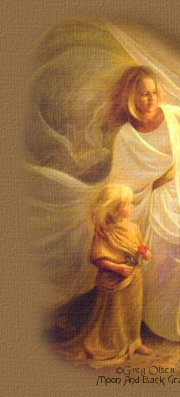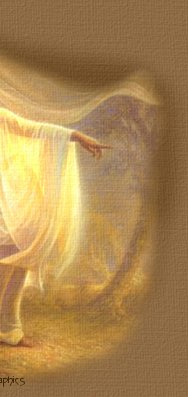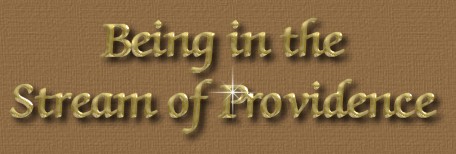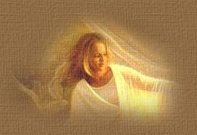|

 
  
By
the Rev. David Sonmor


Text: Exodus 16, Matthew 6:31-34
In the book "Divine Providence" there is an explanation of what Divine Providence is, what it's goal is, what its laws are, why it permits evil and how our salvation is related to it. I like to think we can all gain some insight into our own actions from this phenomenon called Divine Providence.
In the book, Divine Providence it says that divine providence is: "government by the Lord's divine love and wisdom." and that in order to understand this providence we need to know what divine love and divine wisdom are, and that they are entirely inter-dependant and inter-related, also that they, proceeding from the Lord, act as one. It also states that, "All things of the universe were created by them." That is, everything was created from divine love by means of divine wisdom. Also that, everything of creation is a recipient of that love and wisdom, including each of us.
One of the things we can learn from this, is that the Lord provides for all people equally. He does this, not by meting out so much love and so much wisdom to each individual, but rather by making all of his love and all of his wisdom available to all people and allowing each individual to take from it what they will. The reason or purpose of His Divine Providence is to develop a heaven of angels from the human race. So each one of us, if we want to be an angel can be an angel. God will provide everything we need to become an angel, we simply have to open our-self to the idea and develop the desire and the will, and He will do the rest. When we open ourselves in this way, we are entering into the stream of Providence, and we are on our way to angel-hood.
Our reading from the Old Testament this morning has a lot to say about being in the stream of Providence. It gives a very vivid and life-like example of people putting their life in the hands of God and depending on Him entirely to provide for them. Indeed their immediate physical survival in the harsh wilderness is resting on His Providence.
The people had left Egypt. They had made a conscious decision to change their lives, to shed the bonds of their slavery to the Egyptians, and to seek the way of the Lord and His promise of a land where freedom and joy would prevail. This is not unlike us when we decide that we would like to become an angel and live in heaven. However, having taken the initiative and made the first move, they then suddenly and unexpectedly found themselves out in the wilderness of Shur, also called Sin, a desert place where no food or water was to be found. This certainly was not what they had expected and many thought that slavery was preferred to this. This was, to be sure, a scary place, not unlike the mental state some of us find ourselves in when we start trying to figure out how we are to
fulfill our commitment to become angels and to understand what the Lord is teaching us about various religious ideas such as Divine Providence. How do we know if we are involved in it? Or as my sermon title indicates, 'in the stream of it.'
I indicated at the beginning that the Lord's love and wisdom is available to all and that each one need only take what they want. In the desert Moses told the people that the Lord had commanded that each person was to gather the manna according to the amount he could eat. Then said specifically an omer apiece for each person living in his tent. It worked out that by gathering an omer apiece everyone in the tent would have a sufficient amount. An omer is one tenth of an ephah, which is about six gallons, so an omer is a bit more than two quarts. By volume two quarts of food would seem to be sufficient for one day's nourishment. Omer denotes sufficient because it is a tenth of an ephah, and ten signifies what is full , or a full amount. When we come to rely on the food the Lord provides for us spiritually, that is his love, each one should take only as much as she/he can digest or utilize at any given time, and that will be sufficient to carry them to the next day, or the next period of spiritual growth.
The people were instructed that no one should leave any of the manna to be eaten in the morning. They were to use what they had received and not waste it or hoard it, for that would show a lack of faith in the Lord's Providence. The good from the Lord is there and available when needed, but when someone starts being overly concerned for their salvation, they may want to start developing good from themselves and that is wrong. This is like the hypocrites Christ described as always being seen in public worship. They think they can add to the value of it by being seen by others. They then profane it or make it filthy, which is indicated by it being infested with worms.
In Matthew we read: "Do not be anxious about your life, what you shall eat or what you shall drink, nor about your body what you shall put on. Is not life more than food, and the body more than clothing" This passage ties in with the rule that no one should keep any manna over to the next day. They both are speaking about being concerned for the morrow. Outwardly, or from the literal sense, it appears as if caring for what will happen tomorrow is not only forbidden but also condemned. (That it is forbidden is signified by that they were not to make a residue of the manna till the morning, and that it is condemned is signified by that worms were bred in the residue and it stank). One might take from this that all care for the future is to be cast aside and we are just to await the necessaries of life each day but this passage does not mean the care of procuring for one's self food and clothing, and even reserve supplies, as it is orderly for us to provide for our needs in advance. In the climate we live in we know we could never survive if we didn't put in a supply of food to carry us through the winter. The people referred to here, who care for the morrow, are those who are not content with their lot, that is, those who do not trust in the Divine, but rather only in themselves.
"People who trust the Divine Lord… care about the next day, and yet they do not, for they do not think about the next day with concern, much less with anxiety. Their minds are in balance whether they get what they want or not, and they do not grieve over losing what they want. They are content with their lot. If they get rich, they do not put their hearts into their wealth. If they get promoted, they do not see themselves as more deserving than others. They are not sad if they become poor, nor mentally depressed if their condition is humble, for they know that everything leads to a happy state in eternity for people who trust in the Divinity of the Lord, and whatever happens to them in any time frame leads to that eternal state. Remember that Divine Providence is everywhere, that is, in the smallest details of everything, and those are in the stream of Providence who put their trust in the Divine and attribute all things to Him. Those are not in the stream of Providence who trust in themselves alone and attribute all things to themselves, because they are in the opposite condition, since they take Providence away from the Divine and claim it for themselves". (AC 8478) They see everything that is provided as being their right.
How then are you to know whether or not you are in the "stream of Providence'? First of all do you want to be? If the answer is yes then you have already begun. Secondly, do you trust that the Lord will provide life for you no matter what happens in your present world or environment? Thirdly, are you content with your lot? That is, do you appreciate your current position and do your best to maintain it and enjoy it? This does not mean that you should not have changes in your life, of course you should, and they hopefully will be even more enjoyable and satisfying than your present situation. But it also means that you should be thankful for what you have at any given time in your life, including right now.
You know people are in the stream of Providence when you see someone who has suffered some disaster or illness and they tell you that they are better off as a result of it. Maybe they feel that they have grown emotionally or spiritually, or that the direction of their life has changed from one that was self-centered and self-serving to one that now includes love and concern for others.
We should keep in mind that this is a stream we are talking about. It is a constantly moving process. We may not always feel that we are making progress, but that is generally when we are trying to go upstream against the current. There may be pools where movement is slow or we stop to fully utilize and understand what we have been given but it is at those times that we must recall that the Lord is the one who is really moving us along, and in His wisdom we are progressing at a pace that is right for us. How pleasant it is though to reach that point where you "care not for the morrow, for the morrow will take care of itself". How nice to be able to stop worrying because there is a constant underlying feeling in your heart that no matter what happens, everything will be all right. God is in control and life will be given and sustained forever. How nice to literally feel yourself flowing in harmony with the stream of the Lord's Providence. Amen
 




Music:
Forever and a Day
© Bruce DeBoer



|